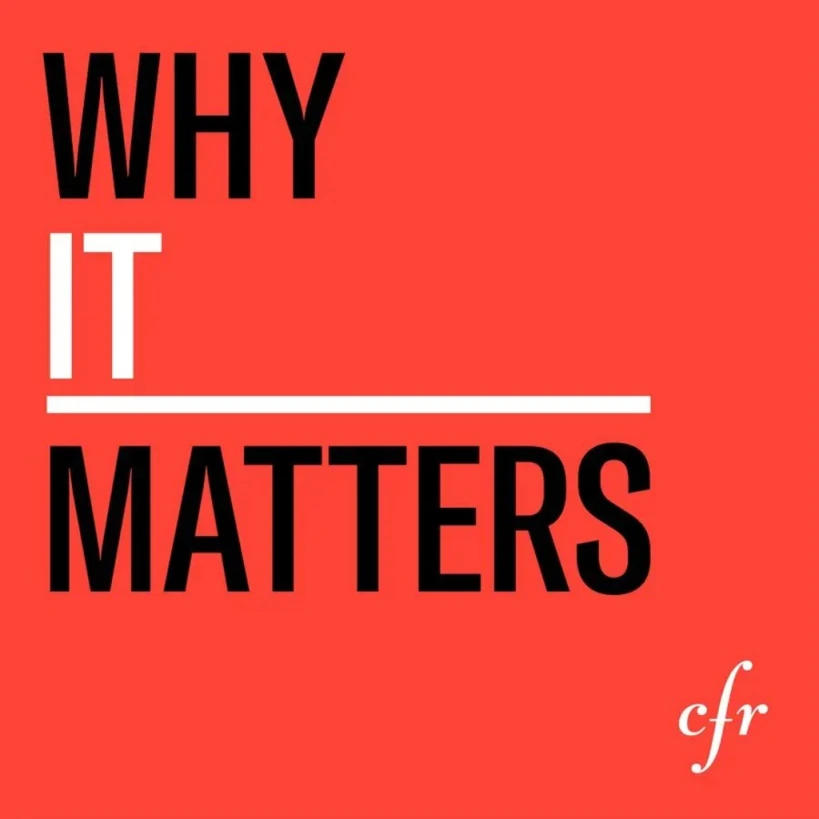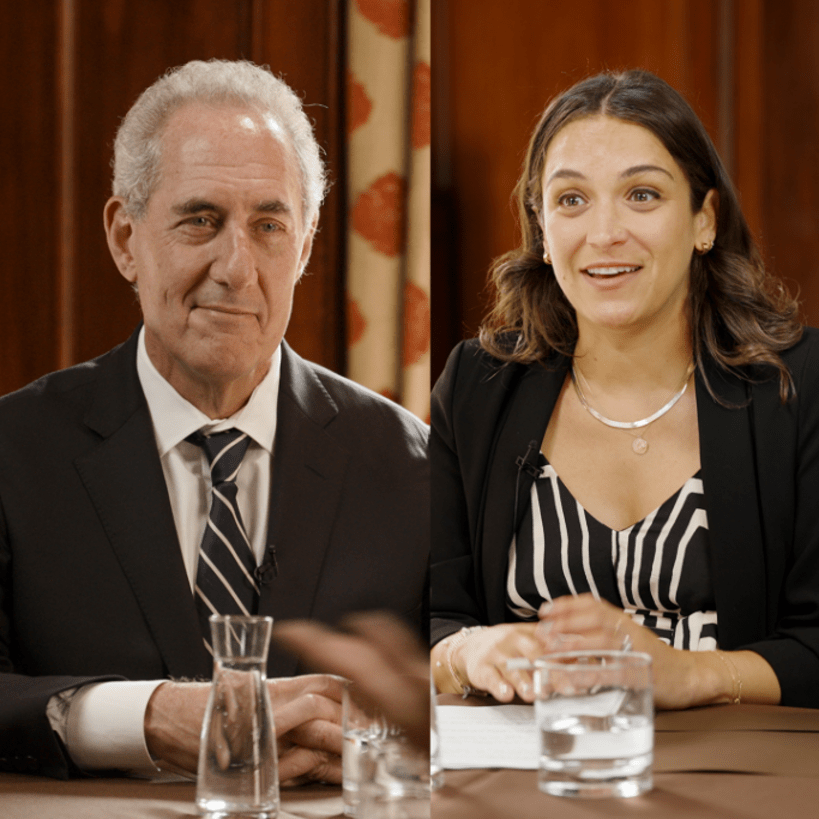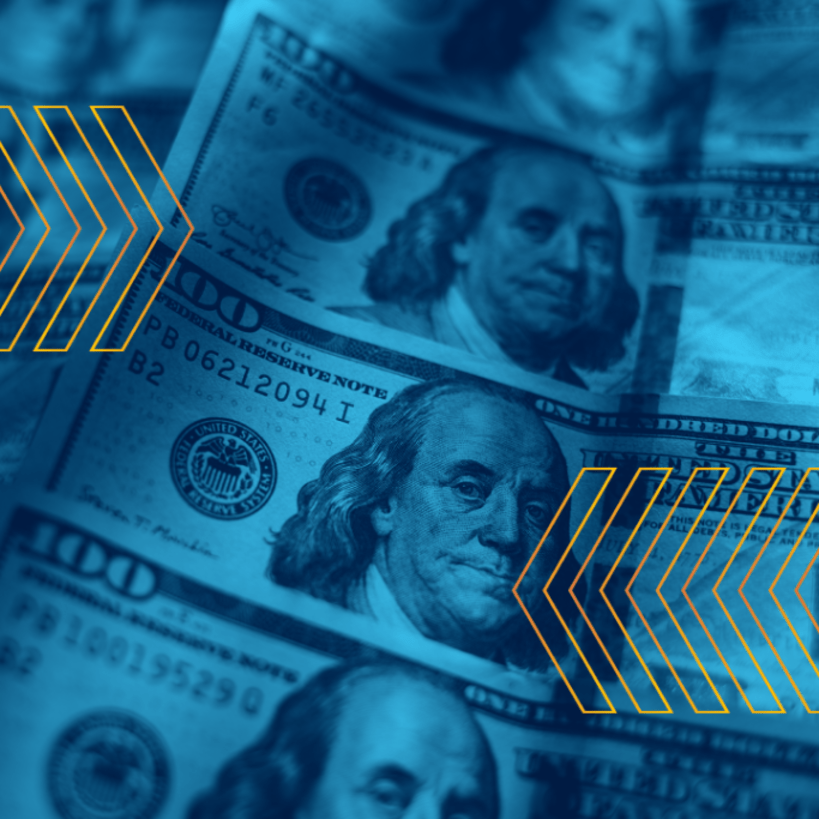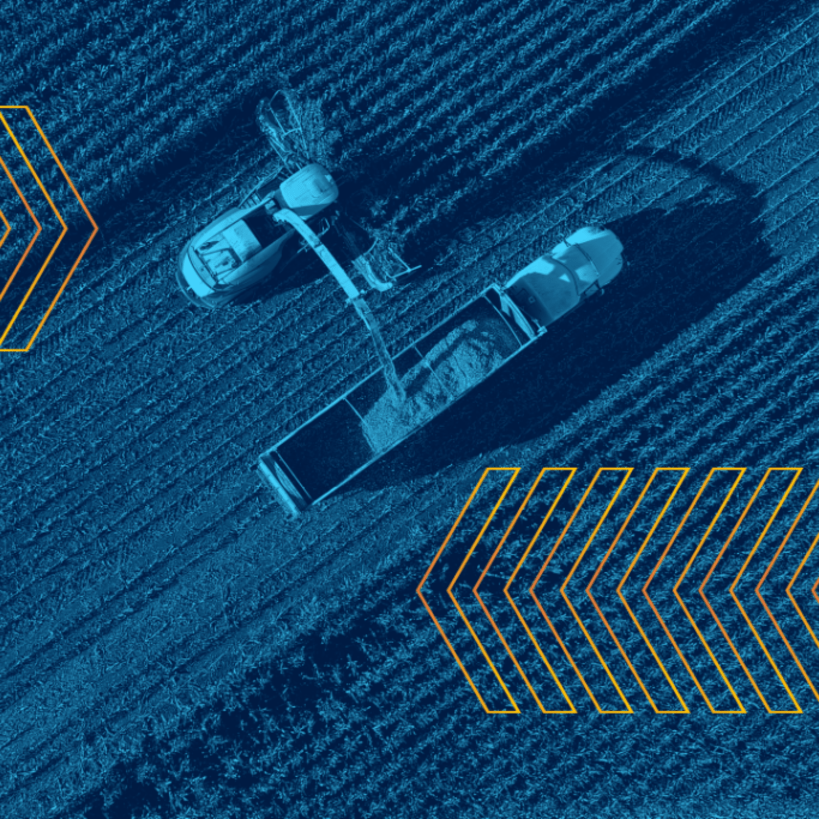Who’s Afraid of the National Debt?
The United States national debt is rising to levels not seen since World War II. Many economists say Washington is on an unsustainable track, but no one knows when it will pass the point of crisis. What is at risk if U.S. debt continues to grow?
Published
Host
- Gabrielle SierraDirector, Podcasting
Guests
- Roger W. Ferguson Jr.Steven A. Tananbaum Distinguished Fellow for International Economics
- Maya MacGuineasPresident, Committee for a Responsible Federal Budget
Supervising Producer
- Asher RossLead Content Strategist
Audio Producer and Sound Designer
Associate Podcast Producer
Show Notes
The United States isn’t fighting a war or a recession. So, why is national debt skyrocketing?
The lingering economic impact of the COVID-19 pandemic combined with increased congressional spending have pushed the national debt to levels not seen since World War II. Efforts to solve the crisis have only resulted in pointed fingers, and neither Republican candidate Donald Trump nor Democratic nominee Kamala Harris have offered a clear solution on the campaign trail. Economists worry that the growing debt could limit other spending priorities and, at worst, restrict Washington’s ability to borrow should another crisis occur.
From CFR
James M. Lindsay, “The United States Has a Debt Problem”
Noah Berman, James McBride, and Anshu Siripurapu, “ The U.S. National Debt Dilemma”
Noah Berman, “What Happens When the U.S. Hits Its Debt Ceiling?”
From Our Guests
Roger W. Ferguson Jr., “The Fed’s Trade-Offs as It Navigates Inflation and Growth in 2024,” RealEcon, CFR
Maya MacGuineas, “Opinion: The Galling Mistake that Led the U.S. to Is Current Debt Problem,” CNN
Maya MacGuineas, “The Grim Future for Medicare and Social Security,” Pittsburgh Post-Gazette
Read More
Michelle Fox, “The U.S. National Debt Is Rising by $1 Trillion About Every 100 Days,” CNBC
Richard Rubin, “Federal Debt Is Soaring. Here’s Why Trump and Harris Aren’t Talking About It.” Wall Street Journal
“What Is the National Deficit?,” U.S. Department of the Treasury
Watch and Listen
“How much national debt is too much?,” Planet Money
Transcript
When is it a good time to talk about the U.S. federal debt? Some of you may be shouting “never” at your phone or computer. But the problem is really big, and in some ways it’s out of control. In fact, just the interest the U.S. pays on this debt per year is more than what the government spends on defense annually.
And since we have an election just around the corner, now might be a good time to seriously talk about it, because neither of our presidential candidates are.
The soaring national debt used to be a recurring concern in Washington, particularly among Republicans. But for more than a decade, it simply hasn’t been a priority for either party - which is concerning - because our debt is now approaching WWII levels and is still on a runaway trajectory.
Some experts think our debt has grown so large as to become a national security threat, while others might say “Hey we still have a healthy, growing economy, so does it even matter?” I hopped on a call with two superstars in the field to figure it all out.
I’m Gabrielle Sierra and this is Why It Matters. Today, let’s talk about debt.
Gabrielle SIERRA: Alright. So how big is that bill? How much is the U.S. federal debt currently?
Maya MACGUINEAS: So the debt is actually so close to being at record levels right now. It’s scary.
This is Maya MacGuineas. She’s the president of the bipartisan Committee for a Responsible Federal Budget, and for decades has been a trusted source for Congress on matters related to the U.S. budget and economic policy.
MACGUINEAS: So there’s $28 trillion in the debt held by the public or $35 trillion if you count what we owe ourselves, which is the debt that’s owed to Social Security and other programs. The debt held by the public, which is what we normally think about because it affects the economy, is at about 99 or 100 percent of GDP.
Yes, you heard that right, our federal debt is roughly the size of the entire U.S. economy, and by the time you’re done listening to this episode, that debt will have increased by more than $100 million.
MACGUINEAS: The record in this country was 106 percent, which occurred right after World War II. And so what’s crazy is we are going to break that record in probably just three years on the current path. And the fact that we are going to do that not having had a world war, shows that this is basically the result of spending money on a lot of things, cutting a lot of taxes, and not being willing to offset the cost. So it’s not a justified debt the way the last time we hit 106 percent of GDP was.
Roger W. FERGUSON Jr.: Indeed she’s right, we’re close to a record. Some of that debt to be clear, has been added because the government borrowed money during a number of crises that we’ve had.
This is Roger Ferguson. He’s a Fellow here at CFR, former vice chair of the Federal Reserve, a friend of the pod, and an expert on domestic and international economics.
FERGUSON: While we haven’t had a major world war, the debt to GDP ratio or the deficit spending as we’ve gone through a financial crisis, a pandemic, another recession has all added to this. So, none of that takes away from any of our arguments, but it is to give a little bit of context that some of this was crisis response and not just pure profligacy, failing to think through things in the long term.
Let’s do some 101 for those, like me, who aren’t econ fanatics. The debt and the deficit are two different but related things. The deficit is the shortfall between what the government spends every year vs. what it gets in taxes. This fiscal year, deficit spending has already hit $1.9 trillion.
The debt is all of the annual deficits added together, or the total amount of money the U.S. currently owes its creditors. Meanwhile, the government has to make interest payments on that pile of debt just like you would when you borrow from a bank, or mortgage lender or credit card company.
Okay back to Maya.
MACGUINEAS: Right now, our interest payments are the second single largest item in our budget, larger than national defense. And it leaves us unable to respond to crises that come along, whether a pandemic, war, recession, the things where you should be borrowing. But to Roger’s point, which I just want to reinforce, there is bad borrowing, which is a lot of our borrowing for political reasons, and there’s good borrowing. And so the way I think about what’s fiscally responsible, it’s when you’re borrowing for economic reasons, then that makes sense. So you’re keeping the economy from crashing more than it might otherwise in a recession or a pandemic.
The Trump and Biden administrations, collectively, spent some $5 trillion responding to the deep economic shocks of the Covid-19 pandemic - the largest stimulus spending in history.
MACGUINEAS: But when you’re borrowing just because you don’t want to pay the bills and it’s purely political, that’s your bad debt. And I really worry that our ability to respond to the massive threats that we see around the world, the geopolitical situations, is greatly undermined by our fiscal constraints. So it’s economic, it’s national security, it’s also intergenerational. It’s sort of the bottom line, simple issue of we want to spend money on a lot of things. We don’t want to pay for it. So we’re pushing those bills to the future, and that future is clearly going to have so many risks of their own and going to need their own budget flexibility. So we are doing real damage to younger workers in the next generation at the same time as we’re undermining our economic strength and our strength around the world globally.
Most governments borrow, and borrowing is fine - even huge amounts. But concerns arise when the debt gets so big that the cost of all that borrowing - the interest - starts to rob funding from other budget priorities including healthcare, defense, climate, and infrastructure.
There are plenty of examples in modern history of what happens to a smaller country when they reach this point. Take Argentina. The country has had a history of bailouts and is currently the International Monetary Fund or IMF’s biggest debtor.
Or Ukraine. Since the Russian invasion, Ukraine has become the most vulnerable country in the world to a debt crisis, with many nations including the U.S., coming to its aid.
But nobody really knows when such a scenario could arrive for the world’s richest country, what it could mean, and what could happen as a result.
SIERRA: So if I’m in debt, the banks, debt collectors, they come for me. What actually happens for a government in this situation?
MACGUINEAS: So we are in debt and we pay our interest payments on it on a regular basis. And so the question is, at what point do those interest payments become problematic? The fact that we are spending almost a trillion dollars a year on interest payments, over $5,000 per household every year on interest payments, and it is growing faster than any other part of the budget, that’s what happens. So like you can borrow and you have your credit card. But what you owe, your minimum amount owed is growing much faster than your income. You’re in trouble. We’re already there. And because I run a group that’s focused on fiscal policy, people always think, “You must be a balanced budget group or something.” And we’re not. You actually don’t need to balance the budget at all. You really just need to get to a point where your debt’s not growing faster than your overall economy.
The last surplus for the federal government was in 2001. Fast forward to today and our debt is growing at record pace.
According to some projections, the U.S. economy cannot sustain more than 20 years of these massive deficits, and unless Congress takes action, we may be spiraling into a debt crisis.
MACGUINEAS: We know that historically, our debt has been well below what it is today, well below 40 percent of GDP. For a while, people thought the goal was 60 percent of GDP. There have been some studies that debt as high as ours are creating real problems on the economy. But there’s no ability to predict when creditors will say, “I don’t want to lend at such cheap rates. I’m going to demand higher returns.” It could be this year, it could be 20 years, it could be 50 years. And the longer we wait, the more difficult the fix is going to be. It’s like climate. It’s like other things where if you ignore it, you then have a bigger challenge you have to resolve, and it’s going to be much more painful than if we had done it sooner.
FERGUSON: I agree with you. We don’t know exactly when there’s going to be a tipping point when all of a sudden, international investors and borrowers say, “We don’t want to take any more U.S. dollars,” But I don’t want you to ignore Maya’s first point, which is already the interest payments on the debt are now the second-largest expenditure, and it’s only going to go up. And so what does that mean? It means that we have less room in our budget to pay for retirement, to pay for defense, to pay for healthcare, to pay for a lot of other things. But Maya’s bigger point is certainly well taken. The more we do this, the more challenges we are confronting, the more it limits our flexibility. And in that sense, it really does matter over a long period of time, though it may not matter next year, and that’s one of the things that makes this a tough problem. It is what I would describe as a chronic problem that builds up over time without being an acute problem where we feel it all of a sudden in one quarter, one month, or one year. And so even if there’s not a crisis tipping point and we don’t know quite where it is, and even if we don’t face other crises, a problem with the debt of this size and magnitude is that the interest payments which we’re obliged to pay make it more difficult to do everything else that we want to do. And so we have to figure this out.
SIERRA: Can’t we just print some more money and take care of it that way-
MACGUINEAS: Did you like 9.1 percent inflation? Because that’s what you get if you print more and then some.
SIERRA: So don’t print more?
FERGUSON: No, don’t print more. There are countries that have tried that. Argentina comes to mind. You get things called hyperinflation, which is even worse.
I was half kidding there, but here’s the danger in just printing more money. If we print more money then inflation goes up. And we all know what inflation means...
CBS Evening News: Do you know how much one of these costs? Two freaking dollars!
We were supposed to skip the power bill this month so we can buy groceries or the mortgage.
Associated Press: Fertilizer prices are up 100 percent. Fuel is up 50 percent. We need to pass it on to the consumer but, ya know, they can only take so much.
You get the picture. Hyperinflation is more severe and happens when the price of goods and services increase rapidly, often at a rate of more than 50 percent per month.
So even though ‘printing more money’ seems like a fun solution, it actually has really serious consequences.
FERGUSON: One thing I would add that makes us different from some other big debtors right now is that debt that’s “held by the public,” much of it is held by countries overseas, not by our own citizens. And some people worry that so much of it’s held by geopolitical adversaries, China in particular, that it might further weaken our economy and our ability to deal with some of the geopolitical challenges.
As of December 2023, foreign investors owned almost a third of U.S. debt, or around $8 trillion. The United States currently owes Japan around $1 trillion - the most of any country in the world. They only recently pulled ahead of China, our primary rival.
There’s been some discussion around whether China would try to leverage its massive debt holdings to harm the U.S. economy. However, many experts say this risk is limited given the Chinese ownership of U.S. debt is mutually beneficial.
FERGUSON: The United States is still in spite of the difficulties that Maya and I agree on, still very much the strongest single economy in the world. We also have the luxury of having what’s called a reserve currency. We’ve talked about that in the past, which means that other countries, other citizens are willing to hold our dollars because they believe in who we are and what we stand for. So though we may not like it in the long run, if we were to continue to borrow, what we have discovered thus far is that capital markets, investors both here in the U.S. and overseas, are willing to hold our debt, which is a double-edged sword. It allows us to keep running deficits without confronting the ultimate risk that Maya is talking about. So I don’t think we should leave people with the impression that we’ve run out of the ability to borrow money if we deal with a crisis.
MACGUINEAS: Even when we kind of create the crisis, as we saw a little bit in the financial crisis, countries still want U.S. bonds. It’s when that situation changes that you can’t actually fight a recession or an emergency nearly as effectively as we’re able to now.
While the United States’ debt in terms of dollars is more than twice that of any other country in the world, it is not alone in having debt as a major political and economic dilemma. For example in the UK, the new Labour government has inherited £2.7 trillion in debt, one of the highest debt loads in UK history. And in Japan, which has a higher relative debt than even the U.S. at more than 250 percent of GDP, leaders are facing tough questions about their stagnant economy and rising labor costs.
Bloomberg Originals: National debt in the UK has ballooned the most since COVID.
DW: More than two and a half trillion euros. That is the sum of German debt right now.
CNBC International News: Is Italy going to start having huge problems because it still has that enormous debt that you and I have talked about for a long long time, currently about 144 percent of their GDP.
Yes.
VisualEconomik EN: As much as it may surprise you, the Japanese government’s debt alone is more than double the debt endured by the governments of southern europe combined.
FERGUSON: The other point I’d make, and Maya implied this, but we should recognize that the issue is on the spending side, how much we spend, and also on the tax side. And recently, people have been complaining a bit about some of the spending that, to Maya’s point, is meant to make the economy bigger, to make the economy grow, to invest in the economy. And that in some ways is good spending, but we need to figure out how to pay for it.
MACGUINEAS: Basically if you look at the government’s resources, it goes to consumption and it goes to investment. And public investment in my mind is absolutely where we need to be increasing our budget.
Public investment is exactly what it sounds like - investing in things that provide long-term benefits to the public like education, infrastructure, scientific research, and innovation. These are the investments that can help us discover new cures, tackle climate change, and build new bridges and roads that connect people all around the country.
But because the U.S. budget is being squeezed, these critical investments may not get the funding they deserve or even end up on the chopping block.
MACGUINEAS: And the way that you finance that is you either raise taxes, which I support, but it’s not very popular politically. And no one should just pretend, “We’re just going to tax millionaires and billionaires and this problem’s going to go away.” That’s not what we’re facing. We need to be realistic. We’re looking at broad-based taxes in order to finance these things. And I also think we have to shift our budget from consumption to investment. Where’s our biggest consumption? Absolutely in programs for the elderly. And as soon as you start talking about this, you have every political candidate saying, “No, no, no, not that.” But Social Security and Medicare, both face insolvency in their trust funds. We have to make changes to the programs. We have our two folks running for president, leading candidates saying they will not touch benefits for seniors at all. And I’ll just point out back to this point of consumption versus investment. In this country, we spend $6 per senior on every one we spend on children under 18 at the federal level. That does not reflect what I think most people’s priorities would be. Many of us are fans of education or a bunch of different kinds of investments. That’s not what our budget is.
The largest U.S. federal budget items are entitlements like Social Security and Medicare, which, combined, make up 35 percent of the budget at over $2 trillion. Defense costs around $800 billion, and right in between those big ticket items is the interest we pay on our debt, which is now over $840 billion.
MACGUINEAS: But just by my saying that, my father is probably knocking at my door saying, “Keep your hands off my Social Security Maya.” We have to be able to have some honest discussions about those bigger programs, because the amount of resources we’re putting towards seniors at the same time that we’re aging causes even bigger fiscal threats looking down the road for us as healthcare continues to grow and as life expectancies continue to expand.
SIERRA: Well, I’ve been told over and over again that I’m never getting Social Security money. So if that helps -
MACGUINEAS: Well, you will!
FERGUSON: Let’s jump in quickly and nuance that comment, So people your age will look forward to getting, let’s say 80 percent of what you’d otherwise get. So it’s not that you won’t get anything, but you’ll get less.
SIERRA: Good. Next time I’m in a bar and my friends are telling me that they’ll never get to retire and they’ll never inherit any Social Security, I’m going to point them to you guys...
FERGUSON: “How wrong you are,” you’ll say.
SIERRA: You guys touched on this a bit, but we’ve seen the debt rise dramatically in both Democratic and Republican administrations, most recently under Trump and Biden. So Roger, how would a Trump or Harris administration differ when it comes to solutions on the national debt?
FERGUSON: Let’s first start with, the debt is just the accumulation of deficits that we’ve had over many, many years. And the last time we ran the government without a deficit was in two years of Bill Clinton’s administration. So this is a bipartisan problem. One of the things that Donald Trump has said is that he would reduce taxes again and try to make up the lost revenue through tariffs.
Donald Trump / WFAA: We’ll lead an American manufacturing boom, we’re gonna have a manufacturing boom and a lot of it’s just taxation policy, tariff policy. They’re gonna come roaring back. When they have to pay tariffs to come in, but they have incentive to build here, they’re going to come roaring back.
As a reminder, tariffs are taxes on foreign goods that are aimed at protecting domestic companies from foreign competition. And while some see them as an important competitive tool, nowadays many economists say that their cost tends to get passed on to consumers and U.S. importers, rather than the target nation.
Donald Trump has proposed a series of huge tariffs - as high as 100 percent of the cost of certain imports.
FERGUSON: He has got some economists who think that makes good sense. Most economists, I would say, see that as being a double whammy. Increased tariffs basically are going to increase costs for all Americans because so much of what we consume, particularly goods, is imported. And reduction in taxes would add to the deficit. And so I’ve seen some responsible individuals suggesting that his programs would significantly worsen the deficit and debt position. Vice President Harris has put forth a set of programs that would basically increase the taxes on a small number of people, but exempt folks who are basically what she would describe as middle income.
Kamala Harris / Now This Impact: Well instead of a Trump tax hike, we will pass a middle class tax cut that will benefit more than one hundred million Americans.
FERGUSON: Maya’s pointed out that you can’t really balance the budget or even start to reduce the deficit if large swaths of income by middle income Americans are exempted. So people expect her proposals to also increase the deficit, but probably far less than Donald Trump’s as we see it thus far. She has also suggested making permanent some different expenditures that we might all think are wise, but figure out how to pay for it. For example, the tax credit for individuals, she would double that. That might fit into Maya’s theory, which I share, that we should be investing in childhood education for example, but it comes at a cost. So net, in this discussion, most of the analyses I’ve seen thus far say that Donald Trump’s proposals are probably going to be much worse for this deficit and debt problem than would be Kamala Harris’s proposals. But neither one of them at this stage seem to be suggesting anything that’s going to lead, ultimately, to a balanced budget.
SIERRA: What have been the drivers leading up to the conversations we’re now having around the debt crisis?
FERGUSON: The bigger problem has been that there’s been a consensus across almost all politicians that we can’t raise taxes, that the concept of seeking a balanced budget is no longer relevant. There’s some folks who believe that because they have this mindset that’s called supply-side economics, that if you cut taxes, the revenue base will suddenly start to grow. I don’t think the evidence has borne that out. There are other people who think we just need to spend more on a number of really good social programs. And if we can’t pay for them, so be it. The other issue that’s actually confronting us, while there’s a concern that all this borrowing is going to drive up interest costs, in fact, we’ve had 20 years where interest levels have been remarkably low. And so those such as Maya and myself, were yelling, “Watch out for that debt and that deficit. Eventually, the costs are going to go up.” The truth of the matter is the market has been able to absorb relatively easily the deficits that we’ve been running. And the final point is the easy places to cut - non-defense, non-Medicare, non-Medicaid, non-Social Security, so-called discretionary - are relatively small pieces of the budget. And they get attacked all the time. We obviously have to start to think about raising it. Medicare, Medicaid, Social Security have all been off limits to all parties. So even when we get someone who says that we really need to attack this budget issue, they attack the so-called easier parts. So-called discretionary spending, because the big chunks are very, very hard to attack. So you put all that together and it’s been a bit of a witch’s brew for increasing deficits, increasing debt. And here we are, 2024 having this conversation.
MACGUINEAS: One of the huge complexities of this I think has been that both parties constantly is blaming this problem on the other. I can’t tell you Roger, I know you’ve had this or if you’re testifying, you’re talking to members of Congress, they’re like, “Yes, but if the other party hadn’t done X, Y or Z.” And so Democrats say, “If Republicans hadn’t passed all these tax cuts, we’d be fine.” Actually, that’s true. And Republicans say, “If there hadn’t been all this built-in growth in the spending programs, we would be fine.” Actually that’s true too. The problem is we’ve done them all. And so the problem is many times over. But nobody should be pointing fingers at anyone other than all of themselves collectively, because this is from cutting taxes, from raising spending, from having built-in programs which don’t even go through the budgeting process. And then from the legitimate response to emergencies, which is what we should be borrowing for. All of those are very major contributors, which is why there’s been such a significant deterioration in the fiscal condition.
SIERRA: So everyone’s to blame.
MACGUINEAS: Everyone!
FERGUSON: Everyone is.
SIERRA: Well, Maya, it seems like the two of you are largely on the same page. Is there a consensus among economists on how to reduce the debt?
MACGUINEAS: No! I mean think there’s a consensus on that, if you read a Congressional Budget Office report, which I highly recommend because they’re fascinating. It was reading one of those that changed my entire career from Wall Street to coming to work on fiscal policy. You will agree there’s a problem. There’s absolutely no legitimate way to look at this and say, “Don’t worry, we’re good.” But there are very legitimate differences on approaches. I’d say that a serious person would acknowledge everything has to be on the table. You can’t do this from revenues or spending alone. But I think, and this is why I’m a political independent, but I think it’s completely independent to say, “I want smaller government,” or, “I want bigger government.” You can be fiscally responsible and pursue both of those, but if you want bigger government, you need to be willing to pay for it. You need to raise taxes. If you want smaller government, the way you do it is not by cutting taxes, which is what we’ve seen repeated attempts to do. “I want a smaller government, I’m going to give you a tax cut,” no you actually have to cut spending. And what we saw under President Trump, for instance, was big tax cuts, but also big spending increases of almost the same size. So that’s not going to get you smaller government. I don’t think there’s a right or wrong, but I will say anyone who’s kind of playing in reality now has to look at this and say, “You really can’t do this without looking at Social Security, without Medicare, without taxes, without the discretionary.” Defense is going to be tricky because I used to be a big proponent of we need to get savings out of defense. And we sure do, but I happen to believe a lot of them are going to have to be plowed back in if the world continues to be as risky as it pretty clearly is.
FERGUSON: I think economists generally agree that this is unsustainable, as is something could happen that would make it very difficult. I think part of the problem is where economists fundamentally disagree is this whole notion of, what did it take to allow the economy to grow more quickly? Do we get the economy to grow more quickly and become more productive by cutting taxes on certain classes of people and they invest? Or do we get the economy to grow more quickly by investing in infrastructure, investing in childhood health, etc., and paying for that? And I think where things have fallen apart in the economics profession is this whole notion of what drives, let’s call it productivity. We all agreed that if you had a much more productive economy that was growing more rapidly, you could create a tax structure that would allow the balanced budget to occur that we all want. But I think where in the economics profession, we have failed is struggling through this very hard question of, what makes the economy more productive?
The debt bubble hasn’t popped yet, and there are still ways to adjust our spending. We’ve made strides before - in 1983, U.S. Social Security reforms brought the program into a surplus for more than three decades.
But the fact remains that the U.S. debt is a massive and growing liability to our welfare and ability to respond to crises at home and abroad. And nobody is quite sure what will happen if we finally reach the tipping point. The process of addressing it needs to begin, despite a thicket of political barriers decades in the making.
FERGUSON: We have to do something. The old statement, how do you eat an elephant? One piece at a time. How do you deal with a really big social economic problem? Maybe chunk it up to something that we all agree is a really tough problem. Where I do hold out some hope because we’ve done in the past is narrower, more focused bipartisan efforts. Let’s start by picking on something that’s significant enough but not so big, and giving it to a group of folks who are experts in a narrow area and make it move forward in that regard.
MACGUINEAS: I don’t think the debt is the biggest problem we face. I think it’s a wicked problem in that wicked problems are ones that are very difficult because they’re not immediate. People don’t see them. It’s very difficult to get people to fix them. I don’t feel dark, but I have some really dark fears about where we’re headed if we don’t really come up with some smart solutions and act on them soon. And not just as a country, as a world. These are big issues.
One of our CFR.org writers who moonlighted as a producer on Why It Matters has moved on to a new gig. And while we are excited for him we will also miss him dearly. He had a big role in pitching and building this episode so we only thought it was fitting for him to read us out.
For resources used in this episode and more information, visit CFR.org/whyitmatters and take a look at the show notes. If you ever have any questions or suggestions or just want to chat with us, email at [email protected] or you can hit us up on X, better known as Twitter at @CFR_org.
Why It Matters is a production of the Council on Foreign Relations. The opinions expressed on the show are solely that of the guests, not of CFR, which takes no institutional positions on matters of policy.
This episode was produced by Gabrielle Sierra, Asher Ross, Molly McAnany, and me, Noah Berman. Our sound designer is Markus Zakaria. Robert McMahon is our Managing Editor. Extra help for this episode was provided by Mariel Ferragamo. Our theme music is composed by Ceiri Torjussen.
You can subscribe to the show on Apple Podcasts, Spotify, YouTube or wherever you get your audio. For Why It Matters, this is Noah Berman, for the last time, signing off






